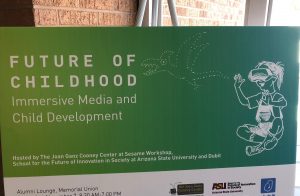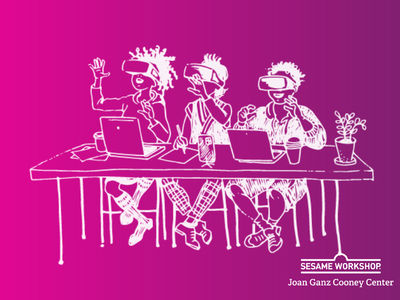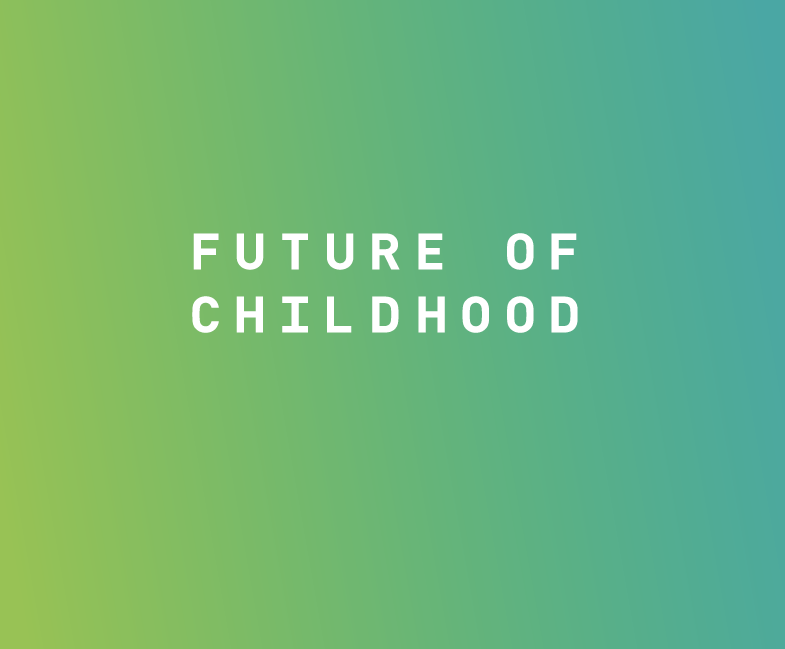
This past November 7 and 8, the Joan Ganz Cooney Center, Center for Science and the Imagination and the School for the Future of Innovation in Society at Arizona State University, and Dubit convened about 60 field leaders at the inaugural Future of Childhood Salon on Immersive Media and Child Development. As salon participants, these leaders in education, research, pediatric medicine, technology policy, content creation, hardware development, and more began thinking about the opportunities and risks of immersive media (i.e., augmented, virtual, and mixed realities) for young children.
Participants shared their expertise through lightning talks on the current state of research and immersive media, experienced demos of real systems, and worked together in group activities in which they mapped out positive futures for young children regarding the use of these new technologies. At the end of the second day, they brainstormed next steps for hardware developers, content creators, researchers, caregivers, teachers, and community-based practitioners, advocacy and policy groups, and investors and philanthropists, and wrote reflective haikus (see a few samples below!).
We are in a unique point in time in which we are able to study, plan, envision, and think about children and their development before immersive media becomes ubiquitous in their lives. With actual systems that are widely and commercially available, we have the opportunity to study the effects of these technologies on children and to produce development standards and guidelines before the technologies are released more broadly to them. This Future of Childhood Salon was a first step in being more proactive, individually and collectively, about ensuring that children are positively influenced by immersive media.
In 2019, we will share a summary of the outcomes of this event that we hope will continue the conversation.
HAIKUS
The increasing pace of change
Call us all to act more quickly
So we don’t become lost!
Immerse yourself in
thoughtful, creative people
We can make a change
Virtual is real?
We asked the big question!
Much was revealed!
Kids in big headsets
Can’t see where they are going
How can we guide them?
Kiley Sobel is a Research Associate with the Joan Ganz Cooney Center; she just received her PhD in Human Centered Design & Engineering at the University of Washington. She is also a National Science Foundation Graduate Research Fellow. Kiley is interested in Interaction Design and Children, Child-Computer Interaction, and Assistive Technology. Her dissertation research was in understanding how interactive technology might help increase opportunities for children with and without disabilities to meaningfully and equitably participate in the same setting inclusively. She has done assistive technology research with Microsoft Research, worked as a teacher’s assistant in early childhood education classrooms, and worked as a behavioral therapist for children.




